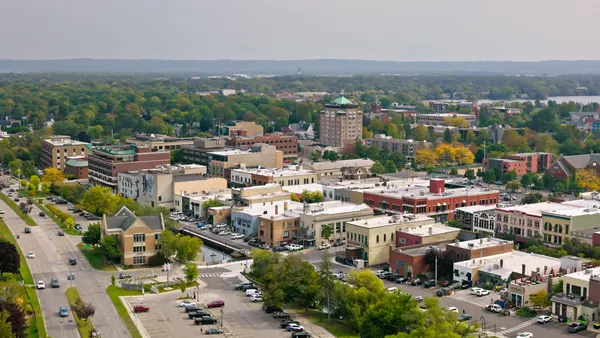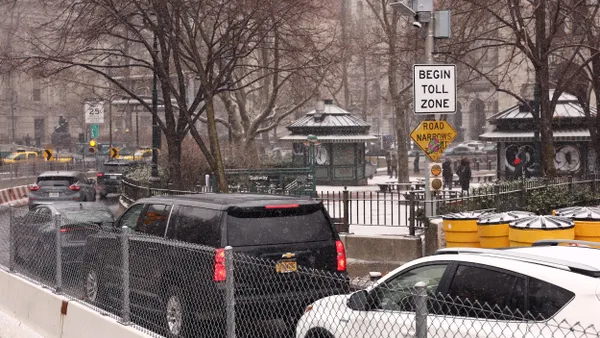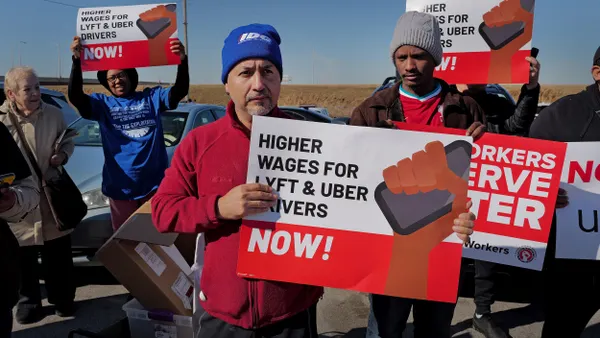Dive Brief:
- U.S. Rep. Hank Johnson, D-Ga., reintroduced a bill on Jan. 18 that would authorize $20 billion annually for four years to the nation’s transit systems, helping them to maintain operations and tackle the fiscal cliff that many are approaching.
- The funding would supplement existing state and local funds and fare box revenue and could go towards improving transit service for those most reliant on public transportation.
- The funds would go to every recipient of the Federal Transit Administration’s urbanized area and rural area formula funds, proportional to their share of operating costs.
Dive Insight:
Many transit systems in the U.S. are still seeing ridership below pre-pandemic levels, resulting in reduced revenues. Transit agencies that do not have other funds, such as dedicated state or local taxes or annual state budget appropriations, may have to raise fares or cut service.
“This legislation is solely dedicated to operational funding,” Johnson said in an interview. “It adds increased flexibility to local transit agencies to be able to obtain this federal funding to actually expand service.”
The bill has 66 mostly Democratic co-sponsors and the support of environmental groups, labor unions, the National Campaign for Transit Justice and the Metropolitan Atlanta Rapid Transit Authority. But LeeAnn Hall, campaign director for the National Campaign for Transit Justice, is working to garner more bipartisan support for the bill. “We're on a trajectory, creating momentum to build up those co-sponsors,” Hall said. “It's not just a blue cities issue. It's something that impacts everybody.”
Johnson explained that the bill would “create more transit opportunities in underserved communities as well as in areas of persistent poverty. And this will enable more people to enjoy a better quality of living, both in urban environments as well as in rural environments.”
According to the Union of Concerned Scientists, which analyzed the potential impact of the bill, the $80 billion investment could add almost 100 million hours of transit service across the U.S. One example of the bill’s potential impact is the Massachusetts Bay Transportation Authority, which this week projected an operating budget shortfall ranging from $567 million to $652 million in fiscal year 2025. Massachusetts could get more than $815 million from Johnson’s bill, according to the UCS analysis.
“We've heard from agencies across the country crying out for legislation like this,” Hall said. “An investment in operations is really an investment in expanding service.” Hall said she is also working to get a companion bill introduced in the Senate.












